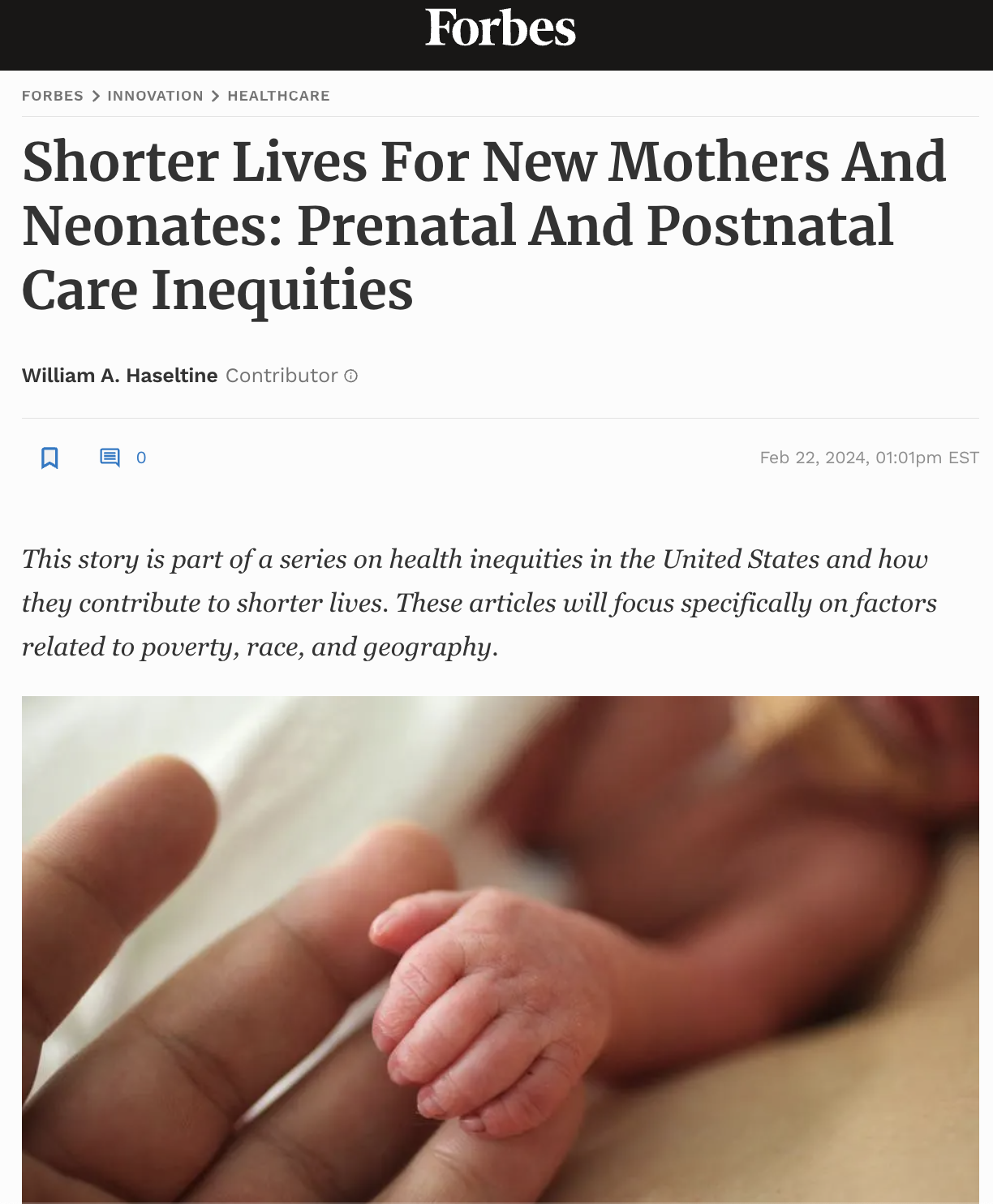Poverty is one of the most influential contributors to health inequities, or socially driven differences in health status. Lack of health insurance is often the result of poverty and can put some Americans at a higher risk of early death. Here, we see that this risk can be even greater among pregnant women and infants who need prenatal and postnatal care.
Early and regular prenatal care is an important part of a healthy pregnancy and reduces the risk of complications for both the mother and the baby. According to data from the US Office on Women’s Health, infants born to mothers who have no prenatal care are almost five times more likely to die during infancy than babies born to mothers who had early prenatal care. Since prenatal care allows healthcare providers to quickly identify and address any pregnancy related issues, doctors recommend that mothers start these prenatal checkups during the first trimester (first 12 weeks) of pregnancy.
These appointments include risk reducing services, including lab work, blood pressure monitoring, and nutrition counseling. Unfortunately, many low income and uninsured women are unable to receive these services. Only about 36% of uninsured women receive the recommended amount of prenatal care compared to 84% of women with private insurance. Additionally, almost 48% of pregnant women who are uninsured during pregnancy are also low income. These inequities in healthcare access put many already vulnerable mothers at a higher risk for death and complications.
Low Birth Weight and Preterm Infants
Lack of prenatal care is a known risk factor for low birth weight (weighing less than 5.5 pounds at birth) and preterm delivery (delivery before 37 weeks of pregnancy). In fact, infants born to mothers who do not receive prenatal care are up to three times more likely to be preterm or have a low birth weight. This status not only increases the chance of complications during birth, but also the chance of early death for the infant. Some studies have even found low birth weight infants to be almost 40 times more likely to die in the first four weeks of life compared to normal birth weight infants.
Children born preterm or at low birth weight are also more likely to experience poor health effects as adults. Infants that weigh less than 5.5 pounds at birth have a 70 percent higher risk of poor health as an adult. Premature aging is also a risk. Some studies have estimated that the effects of being born preterm can lead to the body functioning as if it were 12 years older than actual age.
Infants born to teenage women are also more likely to be overweight or preterm. Data from the Centers for Disease Control has found that these women are also more likely to be living in poverty. As teen pregnancies are often unplanned, pregnant teens may be less likely to receive or afford prenatal care.
Postnatal care
In addition to early prenatal care, The American College of Obstetricians and Gynecologists (ACOG) also recommends regular postnatal checkups for at least 12 weeks after birth. These appointments can be crucial to new mothers, as an estimated one third of maternal deaths occur within one week to one year of giving birth. These postnatal visits can catch and quickly address deadly complications, including postpartum blood clots and hemorrhages.
These regular checkups can also include breastfeeding and nutrition counseling that can increase the probability that a child will live past infancy. Without postnatal care, infants may be at a higher risk of poor nutrition and infections that can cause physical and mental difficulties well into adulthood.
Inequities in both maternal and infant health can be explained, in part, by a few early life factors, including birth weight, income, and health insurance coverage. Even as quality of care improves, these inequities continue to exist because many low-income women in the United States do not have access to prenatal and postnatal services. Addressing socioeconomic factors like poverty is essential to close these gaps and ensure longer, healthier lives for both mothers and infants.


